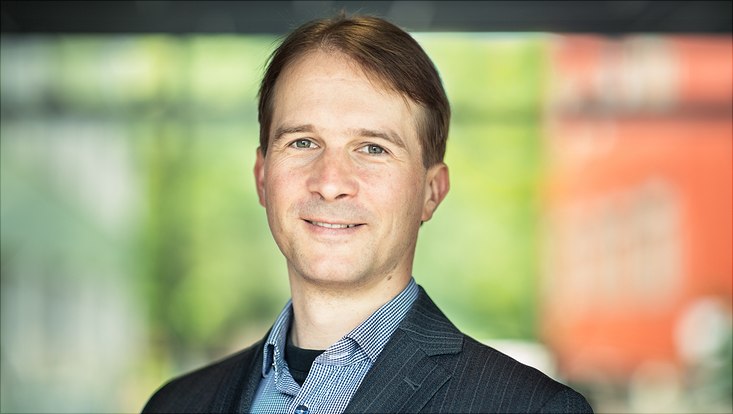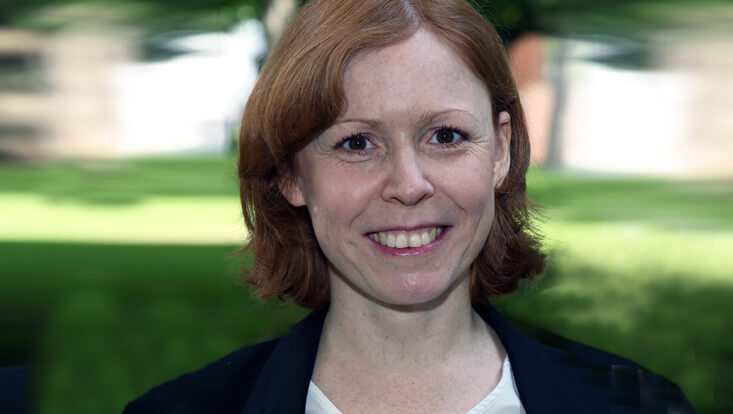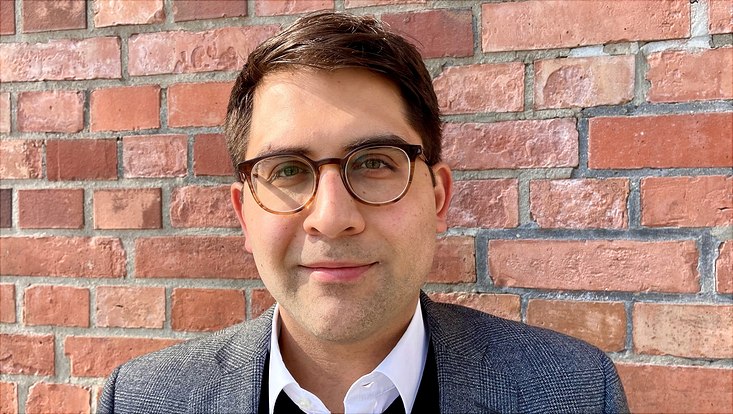“Welcome Aboard!”“How should we create procedures so that computers find solutions to these problems?”Prof. Dr. Winnifried Wollner strengthens the Faculty of Mathematics, Informatics and Natural Sciences
22 June 2022, by Wollner/newsroom

Photo: UHH/Esfandiari
Every year, Universität Hamburg welcomes numerous new researchers. This series introduces them and their areas of research.
Prof. Dr. Winnifried Wollner, previously at the Technical University of Darmstadt, has been working in the Department of Mathematics in Hamburg since 1 April 2022.
My research area in brief:
My research focuses on the optimization of problems in which differential equations play a role. This includes the identification of different important parameters for these equations. Let’s take, for example, models in the climate sciences: we don’t actually know the values of the parameters in the equations. Using optimization techniques, however, we can try to identify them. Similar techniques now also play an important role in machine learning. For this, we need to introduce different, possibly high-dimensional parameters to the system. For me, the question arises as to how we need to create numeric procedures so that the computer can reliably find solutions to these problems.
I explain what I do to friends and family as follows:
Imagine a weather report. Using mathematical models, you can brilliantly calculate how the weather will develop if current weather were known. Thus, for a prognosis, we have to integrate these data into the model and identify the model’s non-measurable parameters. I am interested in the question of how to do this as efficiently as possible.
My research could contribute to solving these problems:
Many problems that concern me arise from application. Currently, for example, I am working on a research project in which I model and optimize how cracks spread in material. You can imagine, for example, a bike helmet. For the helmet to provide protection, the energy released in a crash is absorbed in the damage to the helmet. The question is how the inside of the helmet should be designed so that as much energy as possible will be absorbed by the helmet to reduce injury. My motivation is to develop reliable and efficient calculation procedures for this.
My plans for working at Universität Hamburg include. . .; the things I would love to establish or improve:
I would certainly like to cooperate with Research Training Group 2583: Modeling, Simulation and Optimization of Fluid Dynamic in the Department of Mathematics. And in the Department of Earth System Sciences, for example in Transregio 181, there are many interesting research questions, for example, how effects in climate and geomodels are depicted. Those are also naturally sources for very exciting optimization problems.
Reaching out to the world: I work with the following international and federal institutions and universities:
Internationally, I am cooperating, for example, with Texas A&M University in College Station in the United States. We are investigating how certain nanostructures need to be built to achieve a desired macroscopic effect. In mathematics, this is called inverse homogenization, which we link to form optimization techniques.
This is why students should come to my lectures:
At the moment, I am giving a lot of lectures on optimization techniques for bachelor’s and master’s students and it’s nice to once again have “real people” in front of me after 2 years. Contact with the students is especially important to be able to discuss how to approach problems. I do not simply want to talk at students; my lectures should also be interactive. I offer proseminars in which students work on their own topics and explain them to their classmates. There, too, my goal is the greatest possible exchange and discussion on the topic.
In Hamburg, the city and the University, I am looking forward to:
That’s easy—I was born close to Hamburg and it’s lovely to be home again. And I already thought the University was very exciting when I was here between 2011 and 2015 as a junior professor.
See the pages of the Faculty of Mathematics, Informatics and Natural Sciences for a detailed interview with Prof. Wollner.


